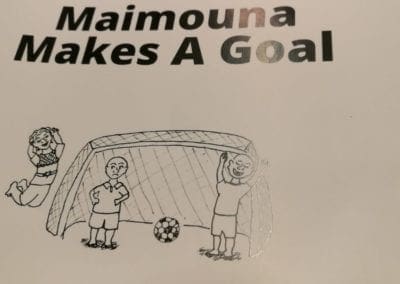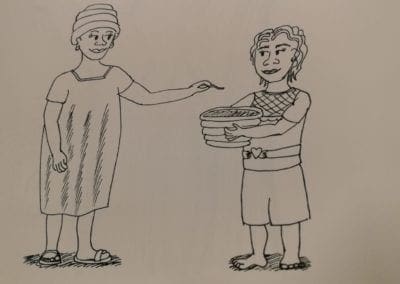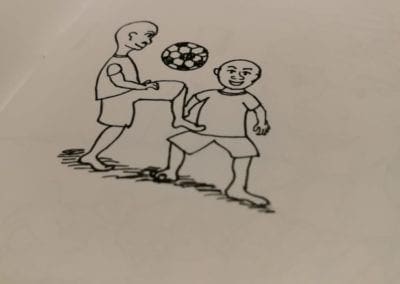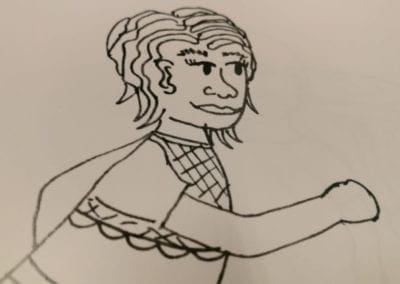Evelyn Marie Sabino is Peace Corps volunteer working in community economic development. She is assigned to serve two years in Goudiry, a small town of about 10,000 inhabitants in Senegal. She was the sole participant in the last Round Table of “Finding Vince 400”. Evelyn is a young American woman who had a strong desire to leave behind the comfort of her country in order to live an experience of Solidarity far from home and in a different culture. “Some friends and family who expressed concern about my moving so far away, urged me to stay and volunteer in The United States,” she said during the panel, “but it’s not the same. It was important for me to have the opportunity to discover a new culture and experience the personal growth that comes when you challenge yourself to exist outside your comfort zone.” When asked what encourages her to keep going when she faces challenges, she said, “It’s not easy to leave everything you know behind but I don’t give up when I encounter difficulty, because I remember that one day I get to go home. I have a choice to be there. But for the people I am serving, it is their reality and because my mother worked so hard to give me the gift of a privileged life, I feel I have a responsibility to serve and give back. When I think about my service, nothing I face is even comparable to what my mother experienced growing up in poverty during her childhood in the Philippines! So how can I give up when she never did?”
In Goudiry, Evelyn’s work focuses on helping entrepreneurs, particularly women and youth, who have a desire to become self-sufficient. She helps them find income-generating activities, teaches them new skills and instructs them on good business practices. The motives are multiple: increase gender parity in education and the workforce, and encourage locals to become independent earners who fuel their own economy and rely less on government assistance.
Evelyn underlined the main goals of volunteers working in four sectors in Senegal: community economic development, health, agroforestry, and agribusiness, but also mentioned that volunteers are free to co-collaborate across sectors and also create whatever projects excite them. Her largest project at site is to work with the mayor’s office in order to create a trash collection system for her village. In Goudiry, currently there does not exist any formal service of trash disposal. Without a solution, garbage is primarily disposed of in the streets, creating problems of hygiene that are quite precarious.
After this introduction, our Volunteer introduced the very object of her intervention in the Festival: a children’s coloring book she wrote in Pulaar, the local language spoken in her village. The story is titled, “Maymuuna Naatniii Logol Gootol” (Maimouna Makes a Goal). Audience members received the English translation.
The story of the book is very charming: it all began thanks to another female volunteer who told Evelyn that the local children lacked access to coloring books featuring drawings to which they could relate. Coloring books sent to the children from America often had themes and subject matters irrelevant to local culture. For this reason, Evelyn thought about writing a new, as yet unpublished, story that the children of Goudiry could color in. She made sure the illustrator drew pictures that reflected the local environment and people, even modeling the appearance of the main character after her younger host sister. The story is about a little girl who wants to play soccer with her brother and his friends, but, because of her brother’s ideas on gender and soccer, she is excluded from the game. The little girl then spends her time helping her mother, an entrepreneur, sell dolls in the market. She saves her earnings. When the ball her brother is using is punctured, she realizes she has saved enough to buy herself a ball and invites him to play. She plays her first game and even scores a goal, helping her team to win and allowing her brother to acknowledge her skill and apologize for excluding her in the past. The story not only gives children a relatable book to color in, but also inspires important values: sharing resources, playing together, goal-setting, saving money, and gender equality.
It is a very Vincentian story.





